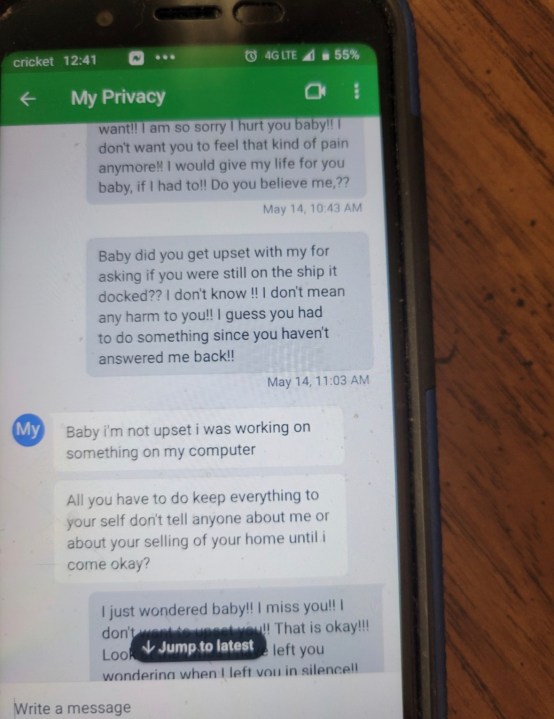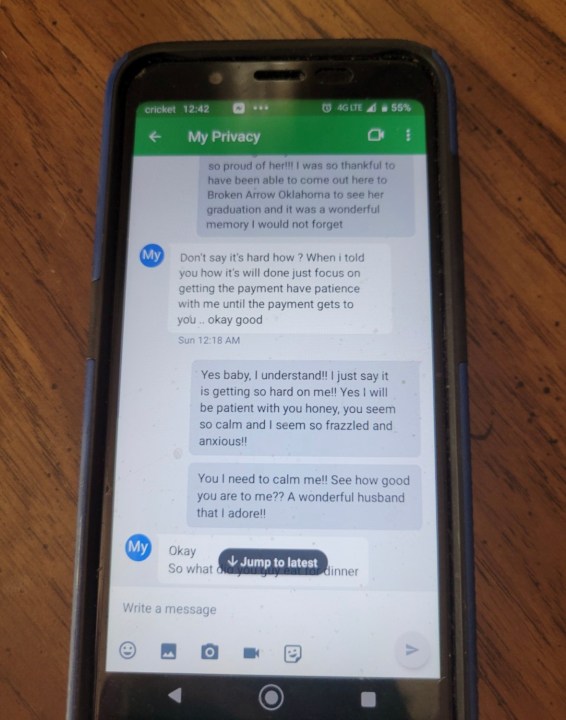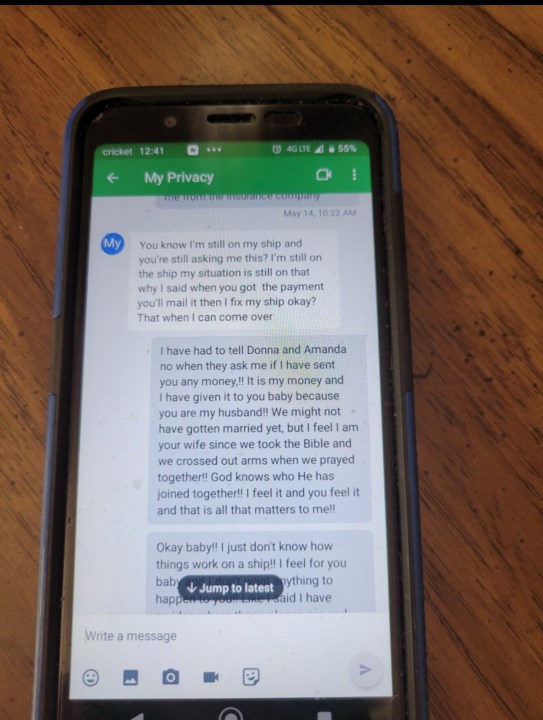How to protect loved ones from $1.3B romance scam industry
Testing on staging11
(NewsNation) — With one in four couples meeting online these days, online romance and fantasy scams have become a burgeoning industry that resulted in more than 70,000 Americans being swindled out of $1.3 billion in 2022, according to the Federal Trade Commission.
In many cases, elderly people have become easy targets for predators who use a myriad of manipulations to get them to send money.
“It’s hard for me to give criminals credit. But this is their job. Right? And they’re really good at it,” said AARP Director of Fraud Victim Support Amy Nofziger. “The criminals will go to any length to find the perfect target,” she added.
For family members of victims, it can be a challenge to convince their loved ones that the person they believe they are in a romantic relationship with may actually be preying on them for money.
“This has torn my family apart,” said Donna Martin, whose elderly mother, Mary, became a victim of a romance scammer. “She’s been brainwashed by this predator.”
After Martin’s father died in 2021, Mary began searching for companionship online, but she quickly became a target of a scammer. Mary believes she’s in love with a man named Oscar Avery who works at sea on an oil rig. But she has never met him.
Martin estimates the person behind Avery’s persona has swindled her mother out of more than $100,000.
“She’s obsessed with him,” Martin said. “I said to my mother, ‘You can talk to him. You can text him. There’s nothing wrong with texting somebody and being a friend but it is wrong when you start sending them money.'”
The situation further escalated when Martin discovered her mother’s house, where she had lived for 45 years, listed on the popular real-estate app, Zillow. Upon investigation, Martin discovered text messages with a contact named “My Privacy” on her mother’s phone. They were from the scammer who directed Mary to keep the sale of her home a secret from her family.
Martin says she’s tried desperately to extract her mother from the scam and has filed police reports and lawsuits to prevent the scam from continuing. But nothing has convinced Mary.
“I said ‘You’re going to give us family away. Your children, grandchildren, great-grandchildren. Just going to throw us away. For what? For a man that used up all your money that’s never going to be here.’ She said ‘Oh, I have hope. He will show up one day,'” Martin said.
How to protect yourself and loved ones
Experts like AARP’s Nofziger say the biggest red flag to watch out for in an online relationship is if they ask you for money.
“I’ve been doing this for over 20 years, and I have heard every single lie possible,” Nofziger said. “Their wallet was stolen, and they can’t pay their contractors. They’re stuck on an oil rig and they need money. They lost their cellphone and they need you to send them a cellphone. If anyone asks you for any money in any form, that is 100% a scam.”
The playbook for manipulations by scammers is so consistent that the Federal Trade Commission even listed some of the most common lies told by predators:
- “I or someone close to me is sick, hurt or in jail.”
- “I can teach you how to invest.”
- “I’m in the military far away.”
- “I need help with an important delivery.”
- “We’ve never met but let’s talk about marriage.”
- “I’ve come into some money or gold.”
- “I’m on an oil rig or ship.”
- “You can trust me with your private pictures.”
So how do you protect yourself and your loved ones from being targeted?
“Be very careful about what information you’re putting out there for the public to see,” said Nofziger. “Obituaries, yes, we want to honor that loved one. But there is a lot of personal information that a criminal can take from one of those obituaries and use it to exploit the bereaved.”
Clinician and author Dr. Louise Stanger, who specializes in addiction, has helped many families who’ve found themselves in crisis following a romance scam. She and other experts suggest doing online checks to make sure loved ones are not sharing identifying information with strangers online.
“Take a look at whether someone is overspending,” she suggests. “Take a look, if they’re very quiet, you know, if they’re suddenly staying at home? Take a look at their phone bill.”
And if you discover your loved one is the victim of a romance scam, Stanger says “create a positive crisis.”
“You have to be able to gather the troops, so to speak, in a loving and compassionate way. And you also have to have a solution,” she said.
Resources:
How to Avoid Losing Money to a Romance Scammer (Federal Trade Commission)
NewsNation’s Zoe Lake, Olivia LaBorde and Van Gaetto contributed to this report.




